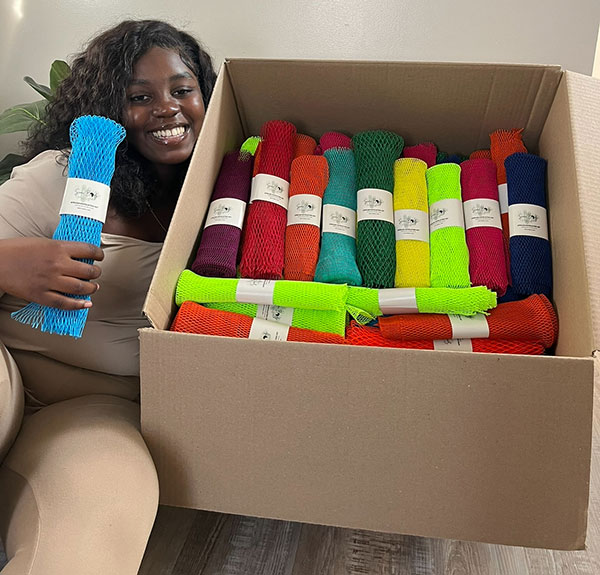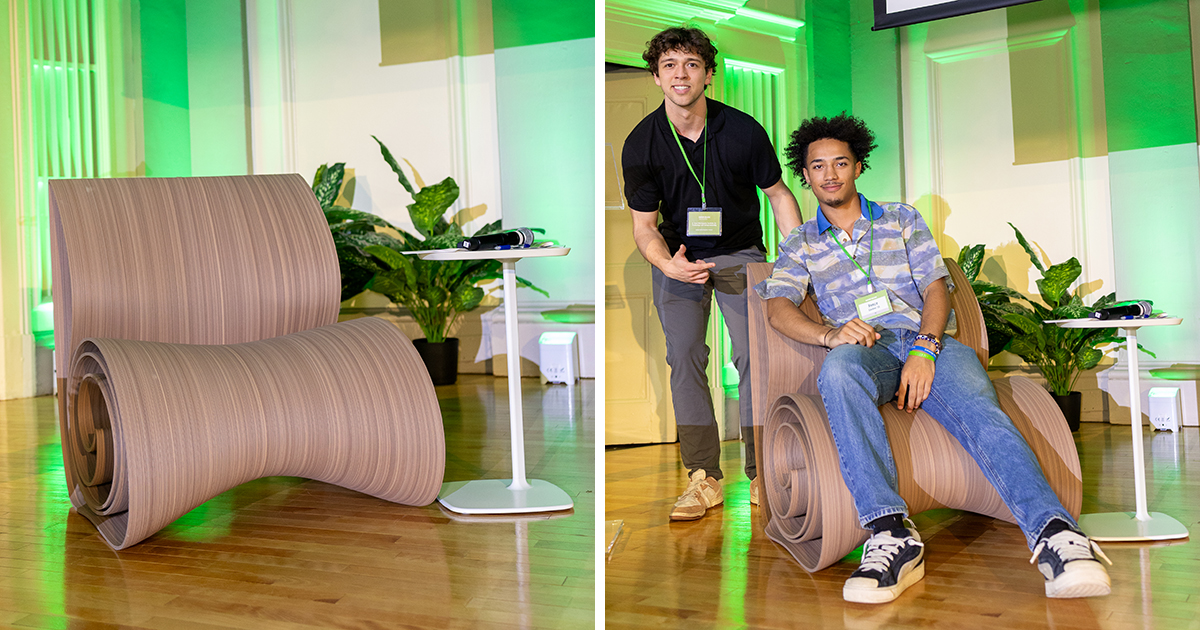Paying Homage to One’s Ancestors Through Entrepreneurship

Zainabou Thiam ’28 may live in Rhode Island, but she was raised in the values of Senegal. Her parents were born in the West African country, and they passed the spirit of their homeland to Thiam. That spirit can be summed up in a single word: teraanga.
“Teraanga is the core value of Senegal,” says Thiam, whose friends call her “Zaina.” “It’s the spirit of being warm, welcoming, respectful, of valuing community.”
To embody teraanga means to share your meal with others. It means offering friends a place to stay if they need it. “You want to make the people around you comfortable,” she says. “I always look out for people.”
Thiam’s appreciation and love of Senegalese culture led her to start a venture, Sunu Body, an African-inspired skin care and wellness brand that sells jewelry, soap, and other products. “It is like me paying homage to my ancestors,” she says. “I want to take my products and show the Western World what self-care looks like in West Africa and Senegal.”
Thiam started Sunu Body when she was only a sophomore in high school. In the beginning, she admits she had plenty of grit and gumption, but she didn’t know much about all the ins and outs of entrepreneurship. Now, she has a year at Babson under her belt. “This is the real deal. Now I’m at a business school,” she says. “This is where I learn the true foundations of running a business.”
Sharing Culture, Supporting Artisans
At first, Thiam didn’t have entrepreneurial ambitions. The beginnings of Sunu Body can be traced back to a trip. Thiam’s mother was traveling to Senegal for work, and Thiam had asked her to pick up some waist beads.

Those beads, traditional jewelry worn around the waist, were soon given to friends, and their interest and enthusiasm sparked an idea in Thiam. The next time her mom went to Senegal, Thiam asked her to load up on jewelry, not just waist beads but bracelets and anklets as well.
This time, Thiam intended to sell the jewelry, posting a picture of her inventory on social media. “To my surprise, so many people texted me,” she says. “I was making one to five sales every day for months.”
So began Sunu Body, which has garnered media attention in The Boston Globe, Rhode Island Monthly, and Her Campus, a publication for college-aged women that this year named Thiam to its 22 Under 22 list, an annual recognition in partnership with e.l.f. Cosmetics that celebrates women driving change.
One of Thiam’s hopes with Sunu Body is to share her culture with Black Americans who may feel disconnected from their African roots. “I am a bridge between the two,” she says. She also wants to support the West African artisans who make her products. “They have all the traditions, all the culture and knowledge that is passed down from generation to generation,” she says.
Thiam describes Sunu Body as offering handmade and ethically sourced self-care products. Currently, the company works with five artisans in Senegal. Thiam pays them on a contract basis, but one day, as the venture grows and she achieves her goal of selling in retail stores, she hopes to put them on a salary.
“As we gain more sales as a company, I want to do more for them,” she says. “Everyone loves success, but my success will mean the success of others.”
More than a livable income that pays for not much more than food, housing, and other basics, Thiam ultimately wants the artisans to earn what she calls a “thrivable” income. “Livable means the bare minimum,” she says. “I believe people deserve a thrivable income.”
A Social Entrepreneur
Babson has impacted Thiam’s venture, as well as her mindset. Thinking that building a business would be an unstable endeavor filled with uncertainty, she wasn’t sure she ever wanted to make entrepreneurship her life. Sure, it was fine as a side hustle, she thought, not as a career.
Her thinking, though, has changed after a year at Babson, a year that included taking the College’s signature Foundations of Management and Entrepreneurship course. “Entrepreneurship is a career,” she says. “It is something I could do full time.”
“My true love and passion is people. I love working with people, partnering with people, helping people.”
Zainabou Thiam ’28, founder of Sunu Body
This summer, Thiam is hosting interns while working on marketing and building brand awareness. She also is taking time for a social project, raising funds to either build a well or rehabilitate an old one in rural Senegal. She’s partnering with an organization committed to providing freshwater access to people who need it.
This is the second year in a row Thiam has worked on a social project while she grows Sunu Body. Previously, she traveled around the world—Guatemala, United Arab Emirates, U.S. Virgin Islands—teaching workshops on the basics of entrepreneurship to students from disadvantaged backgrounds.
“If I’m going to be an entrepreneur, I’m going to be a social entrepreneur,” Thiam says. “My true love and passion is people. I love working with people, partnering with people, helping people.”
Posted in Entrepreneurial Leadership




